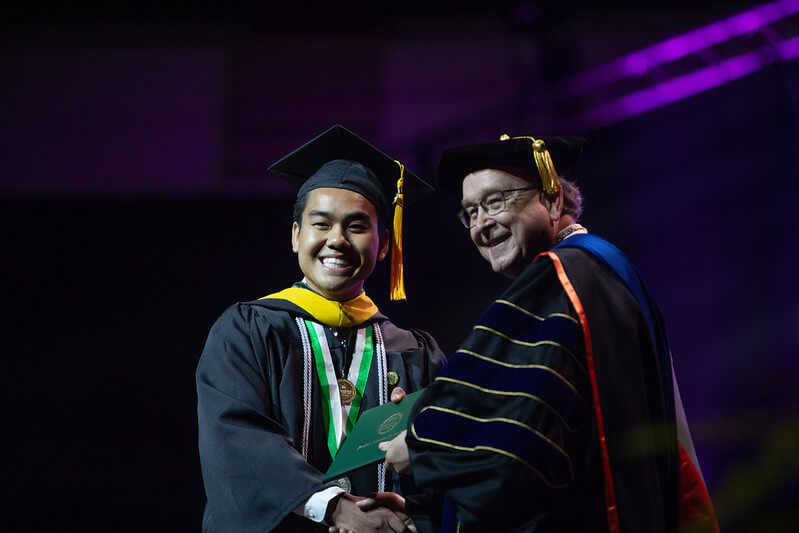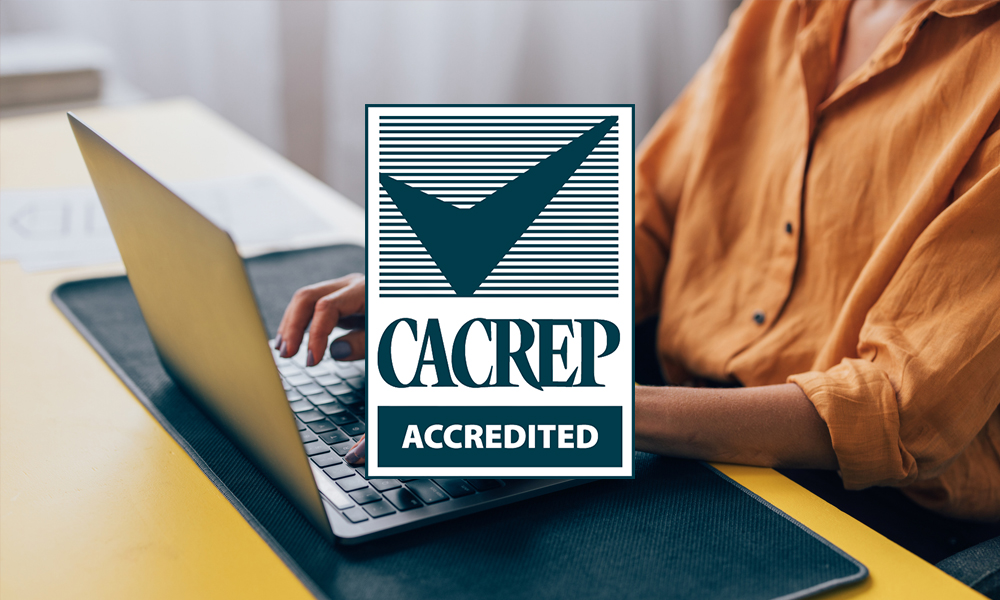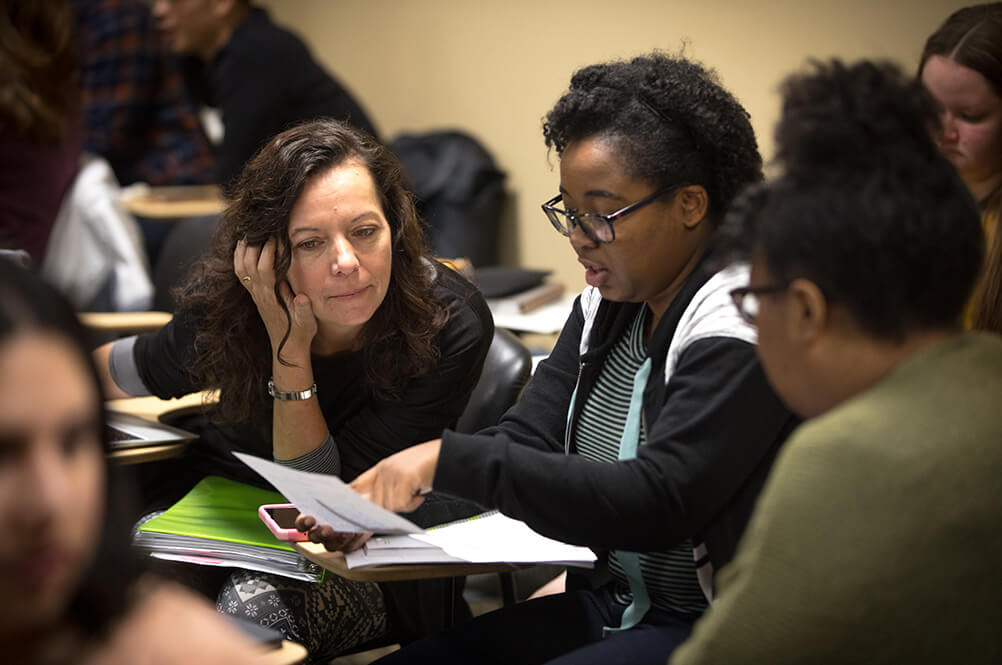
Why Study Professional Counseling at Southern?
Choosing a Career in Professional Counseling
Professional Counselors are graduate level mental health service providers who hold
either a master’s or doctoral degree. Professional Counselors are trained to work
with adults, children, families, and groups in treating mental, behavioral, and emotional
difficulties and disorders. They may hold specialties in Clinical Mental Health Counseling,
School Counseling, Addiction Counseling, Marriage, Couple and Family Counseling, as
well as other areas that are relevant to the mental health field.
Our world is changing rapidly. All around us, there is a heightened sense of distress,
fear, anxiety, anger, depression, grief, illness, conflict, social injustice, and
despair. If you want to be an instrument of peace, joy, and healing for those who
suffer, a career in professional counseling might be for you.
Read on to see the top 6 reasons why studying Professional Counseling at Southern
may be the right fit for you.
1. Faith-Based

Southern is a faith-based institution where students feel free to integrate their passion for service and professional fulfillment with what they believe is God’s purpose for their lives.
In the GSPC program, students learn to combine theoretical knowledge, dialogue, research, and practice skills within a framework of Christian values. A humble recognition is given to the continual guidance of Christ, as the Master Counselor who brings good news to the poor, comforts the brokenhearted and proclaims that captives will be released. (Isaiah 61:1)
However, you do not have to be a Seventh-day Adventist, or for that matter, Christian, to enroll in the program. Diversity, including religious diversity, is highly respected among students and faculty. Everyone is welcomed into our academic community regardless of opinion or belief differences. Students who identify as non-Seventh-day Adventists Christians, non-Christians, or non-believers greatly enrich the program's dialogue and experience.
2. Affordable

Master’s degrees in Professional Counseling at Southern are surprisingly affordable.
By contrast, Southern’s graduate tuition and fees in 2020 are approximately $16,265 for all students regardless of their state, out-of-state, or international status.
Additionally, there are merit-based scholarships that are granted to students who have earned a bachelor’s degree from Southern Adventist University during the past 3 years.
A limited number of graduate assistantships are also available to counseling students which carry a stipend and a waiver for half of their tuition every semester.
If you lived near Southern, you may find that its location helps you save on the overall costs for graduate school because Chattanooga’s cost of living is less than the national average. Learn more about living expenses in the Chattanooga area.
You may discuss additional options for financial aid with a university graduate student finance counselor.
3. Accredited

The GSPC program is accredited by the Council for Accreditation of Counseling and Related Educational Programs, commonly known as CACREP.
CACREP is the highest independent accrediting agency for graduate counseling programs throughout the United States and the world. Their accreditation ensures that programs meet appropriate standards within the counseling profession. The program’s emphasis in School Counseling is also approved by the State of Tennessee School Counseling (PreK-12) licensure program.
Additionally, Southern Adventist University is accredited by the Commission on Colleges of the Southern Association of Colleges and Schools (SACS), and the Accrediting Association of Seventh-day Adventist Schools, Colleges, and Universities, a worldwide association. Southern consistently earns top-tier ranking from U.S. News & World Report.
4. Mentoring Faculty

The GSPC faculty intentionally fosters a family-like atmosphere that prevents students from feeling lost on campus, and helps them receive support as needed throughout their studies. By design, the faculty-student ratio is kept low. This facilitates direct, high-quality supervision in clinical skills, enables professors to provide meaningful mentorship for students, and makes students comfortable about consulting with professors on hard life questions and important career decisions.
Additionally, faculty members lead a very active research team with students. This provides an excellent opportunity for students to develop their research skills, participate in professional conference presentations, and submit their studies to peer reviewed journals under the mentorship of their professors. Some research areas of interest include, multicultural counseling, couple and family relationships, crisis counseling, spirituality in counseling, meaning of life, counselor education and training, and others.
Relationships developed between faculty and students frequently extend beyond graduation.
5. Diverse

Students and faculty represent a very diverse community. They come from various states in the U.S., from California to New York and from Minnesota to Florida. They also come from nearby countries like Canada, Mexico, or the Caribbean Islands, as well as distant nations like South Africa, China, and South Korea. All minority groups are welcome, all ethnic backgrounds are celebrated, and students are encouraged to get involved in advocacy projects on behalf of underserved populations.
Those attending the program identify as Southern Baptists, Methodists, Pentecostals, evangelicals, Seventh-day Adventists, Catholics, non-denominational Christians, agnostics, atheists, and others. Some graduates have had Buddhist and Muslim backgrounds as well.
Sharing ideas and experiences, learning and reflecting, as well as developing our professional counseling skills in such a diverse atmosphere greatly enriches us personally and expands our professional horizons.
6. Flexible

Because our professors understand the needs of busy adult learners, Graduate Studies in Professional Counseling is designed with your convenience in mind. You will be able to: